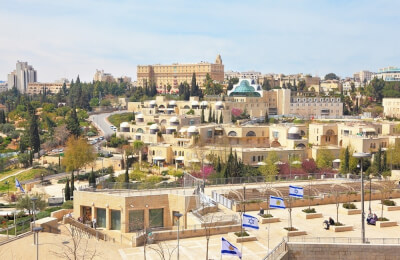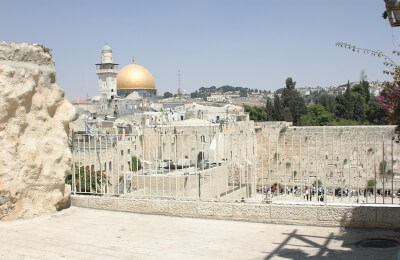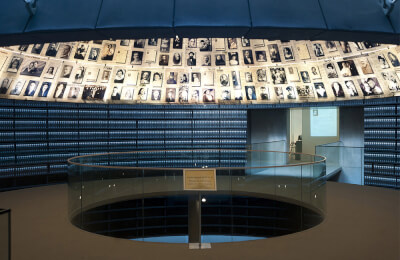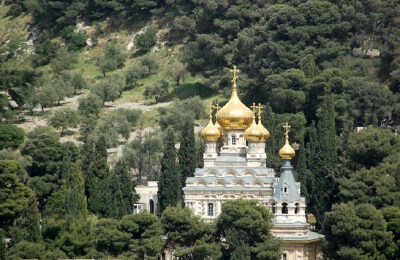
179. Jewish Jerusalem and Yad Vashem Promotion
 175₪
175₪
 175₪
175₪
Jerusalem tour Promotion

Jerusalem tour (up to 8 people) Promotion
Jerusalem tour (up to 18 people) Promotion
Tour of Jerusalem (up to 18 people) Promotion
Tour of Jerusalem (up to 8 people) Promotion
We also found excursions from other cities that are close to your departure city
Other excursions that also deserve your attention
Hurva Synagogue: A Beacon of Jewish Heritage and Resilience in Jerusalem
Israel, a land that resonates with millennia of history, spirituality, and cultural diversity, offers a wealth of captivating sights and landmarks that have drawn visitors and pilgrims from around the world for centuries. Among these treasures, the Hurva Synagogue, situated in the heart of Jerusalem's Old City, stands as a testament to Jewish heritage, resilience, and the enduring spirit of the Jewish people. In this article, we will explore the concept of sightseeing in Israel and delve into the fascinating history, spiritual significance, and interesting facts surrounding the Hurva Synagogue.
Sightseeing in Israel
Sightseeing in Israel is a journey through time, faith, and cultural heritage. The country's landscapes encompass ancient streets in Jerusalem, serene shores of the Sea of Galilee, and the arid expanses of the Negev Desert. These diverse settings offer travelers a profound blend of experiences, whether they seek to explore ancient ruins, connect with religious heritage, marvel at natural wonders, or immerse themselves in vibrant cultural traditions.
From the iconic Western Wall in Jerusalem to the tranquil beauty of the Mount of Beatitudes, the imposing fortress of Masada, and the bustling markets of Tel Aviv, Israel is a treasure trove of captivating destinations. Among these renowned sites, the Hurva Synagogue invites visitors to explore the rich history and spiritual significance of this iconic place of worship.
Hurva Synagogue: A Symbol of Jewish Heritage and Resilience
The Hurva Synagogue, also known as the Hurva of Jerusalem or simply the Hurva, is a historic synagogue located in the Jewish Quarter of the Old City of Jerusalem. It holds a prominent place in Jewish history and serves as a symbol of both the challenges and resilience of the Jewish people.
History and Significance
The history of the Hurva Synagogue is a testament to the enduring spirit of the Jewish community in Jerusalem. The original synagogue was built in the early 18th century but was destroyed by the Ottomans in 1721 during a conflict with the Jewish community. The synagogue remained in ruins for over a century, becoming a symbol of Jewish exile and loss.
In the mid-19th century, with the support of Jewish philanthropists and the Ottomans, the synagogue was rebuilt in a grand architectural style. It became a center of religious and communal life for Jerusalem's Jewish population.
Tragically, the Hurva Synagogue faced destruction again during the 1948 Arab-Israeli War. It was intentionally blown up by Jordanian forces as they captured the Jewish Quarter of the Old City. For decades, the ruins of the Hurva served as a poignant reminder of the tumultuous history of the Jewish Quarter.
In 2010, after meticulous restoration efforts, the Hurva Synagogue was rebuilt to its former glory and reopened as a place of worship, reflection, and remembrance.
Fascinating Facts about the Hurva Synagogue
1. Architectural Grandeur: The Hurva Synagogue boasts a stunning architectural design, blending elements of Renaissance, Gothic, and Byzantine styles. Its soaring dome and intricate interior detailing make it a visual masterpiece.
2. The "Hurva Arch": The synagogue's large arch, known as the "Hurva Arch," is a recognizable feature in the Old City's skyline and serves as a symbol of the Jewish Quarter's revival.
3. Jewish New Year Tradition: On Rosh Hashanah, the Jewish New Year, it is customary for Jewish leaders and the public to gather at the Hurva Synagogue to recite the special "Slichot" penitential prayers.
4. Restored Torah Scrolls: As part of the synagogue's restoration, numerous Torah scrolls that had been hidden during the war were recovered and returned to their rightful place, adding to the synagogue's spiritual significance.
5. Religious Services: The Hurva Synagogue hosts daily prayer services and various religious ceremonies, making it a vibrant hub of Jewish spiritual life in the Old City.
6. Visit to the Rooftop: Visitors can access the rooftop of the synagogue, which offers breathtaking panoramic views of the Old City, including the Western Wall and the Dome of the Rock.
7. Symbol of Resilience: The Hurva Synagogue's history of destruction and restoration serves as a powerful symbol of the Jewish people's resilience and determination to rebuild and preserve their heritage.
Visiting the Hurva Synagogue
For travelers interested in exploring the Hurva Synagogue and its surroundings, here are some practical tips:
1. Location: The Hurva Synagogue is located in the Jewish Quarter of the Old City of Jerusalem. It is easily accessible on foot and is a short walk from other significant religious and historical sites.
2. Modest Attire: When visiting religious sites, it is advisable to dress modestly and respectfully, covering shoulders and knees.
3. Guided Tours: Consider joining a guided tour of religious and historical sites in Jerusalem to gain a deeper understanding of the Hurva Synagogue's history and significance.
4. Operating Hours: The synagogue's operating hours may vary, so it is recommended to check in advance, especially if you plan to attend religious services or guided tours.
Conclusion
Israel's rich tapestry of sights and experiences offers travelers a unique opportunity to connect with history, faith, and cultural heritage. The Hurva Synagogue, with its turbulent past and triumphant restoration, stands as a symbol of Jewish heritage, resilience, and the enduring spirit of the Jewish people. As you step into this sacred place, you become part of a timeless narrative that celebrates faith, preservation, and the enduring connection between the Jewish people and the city of Jerusalem.














